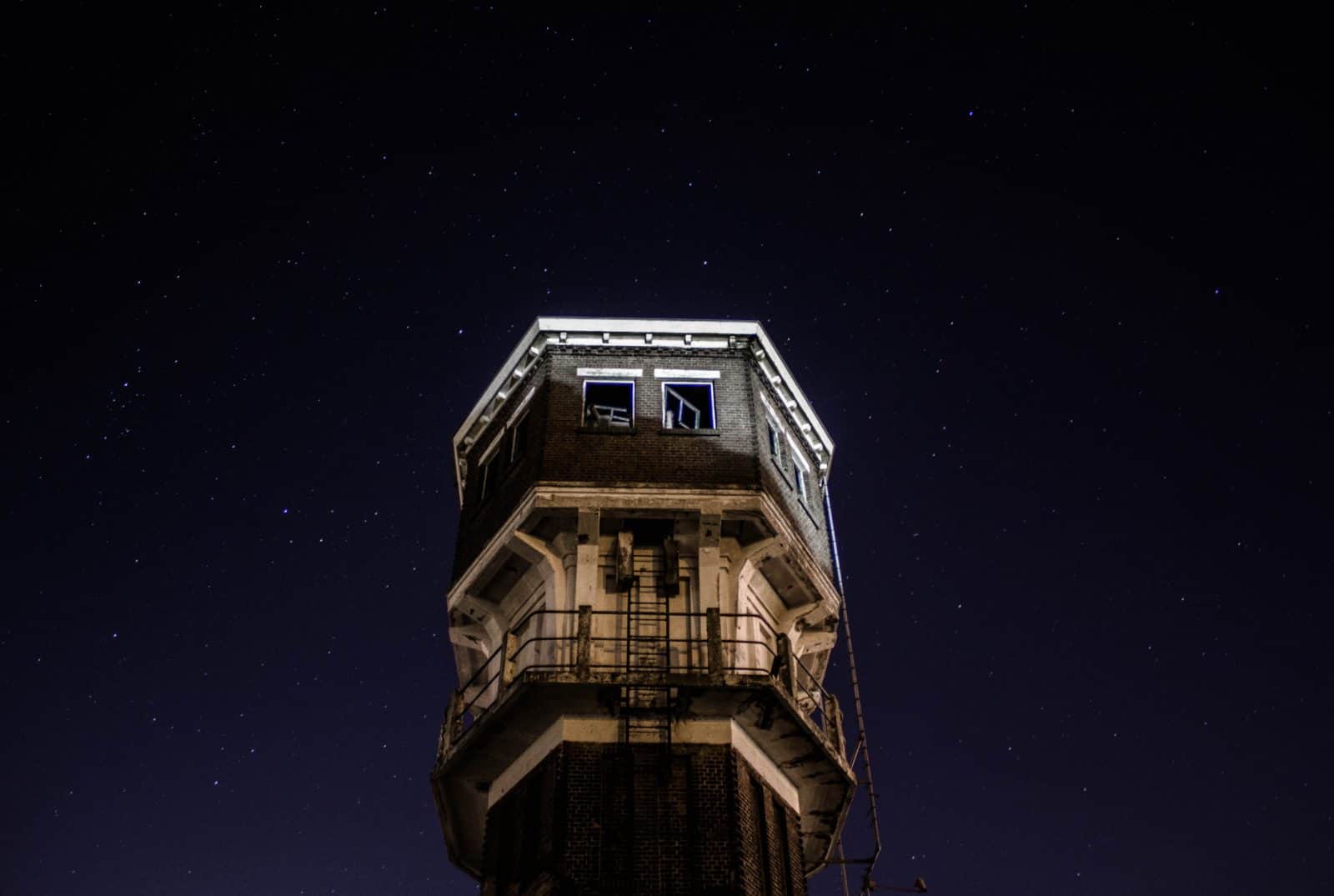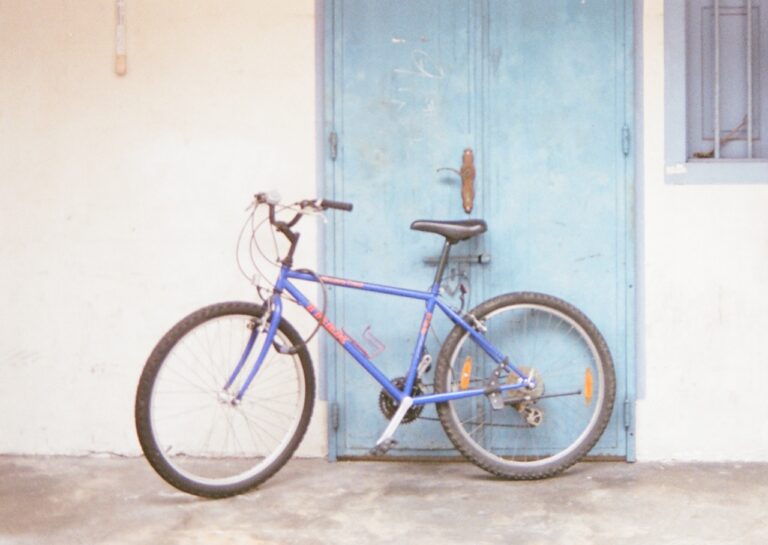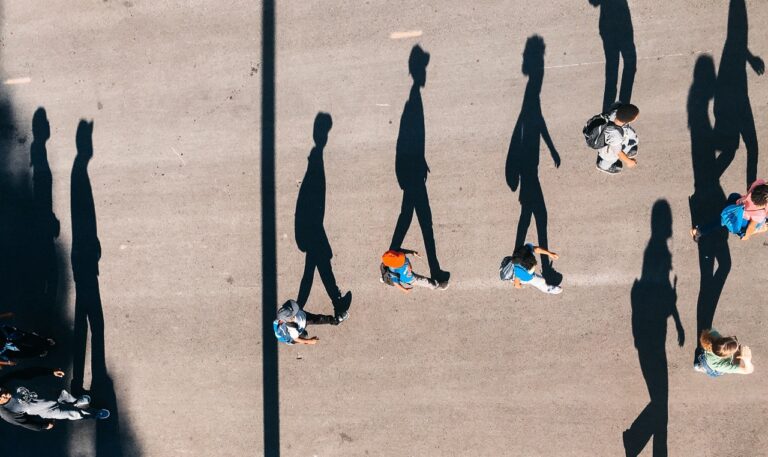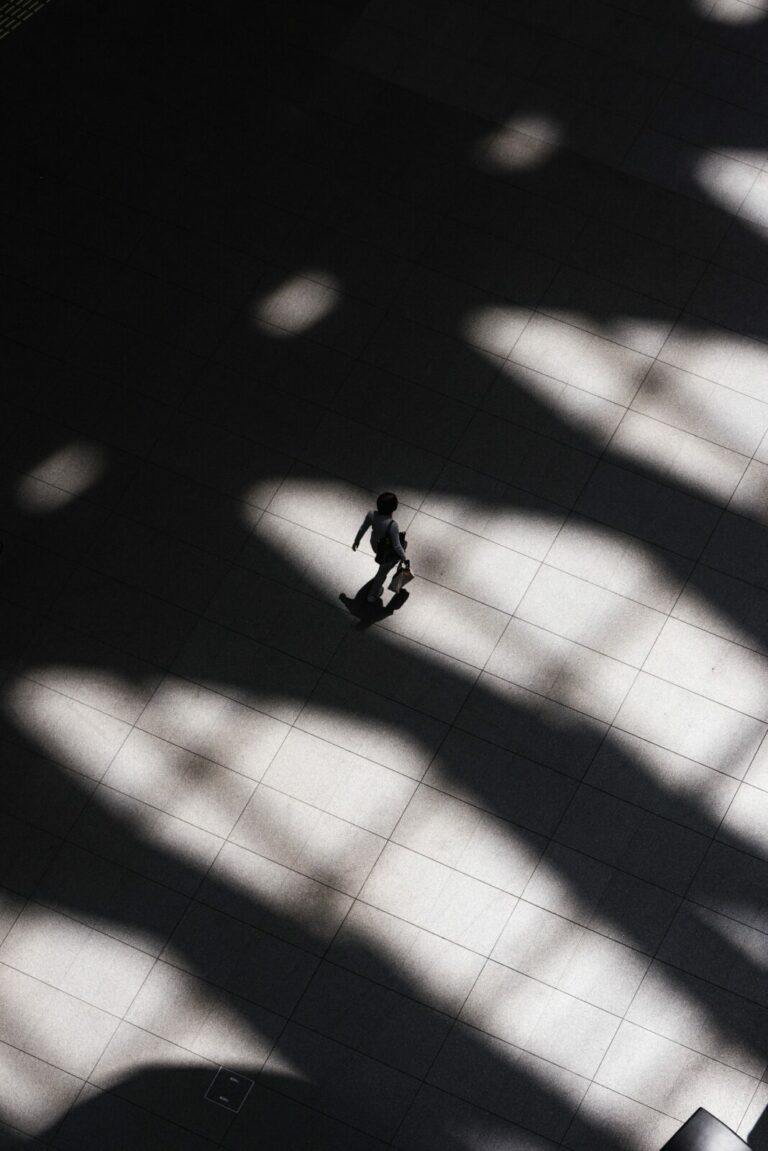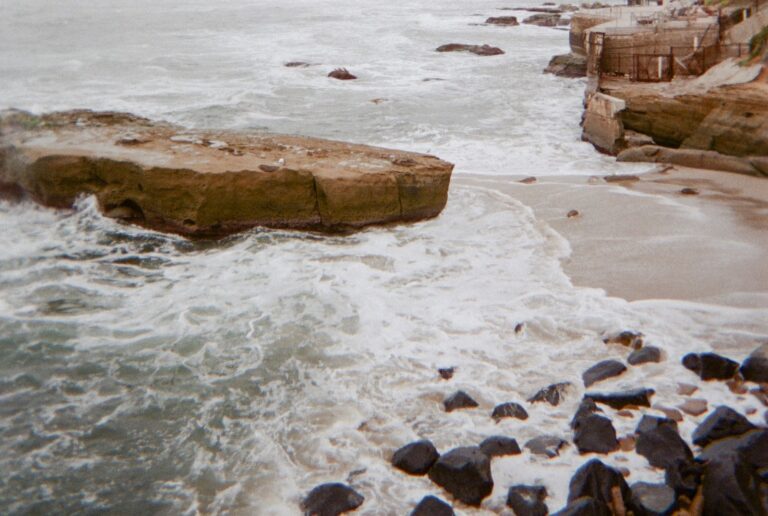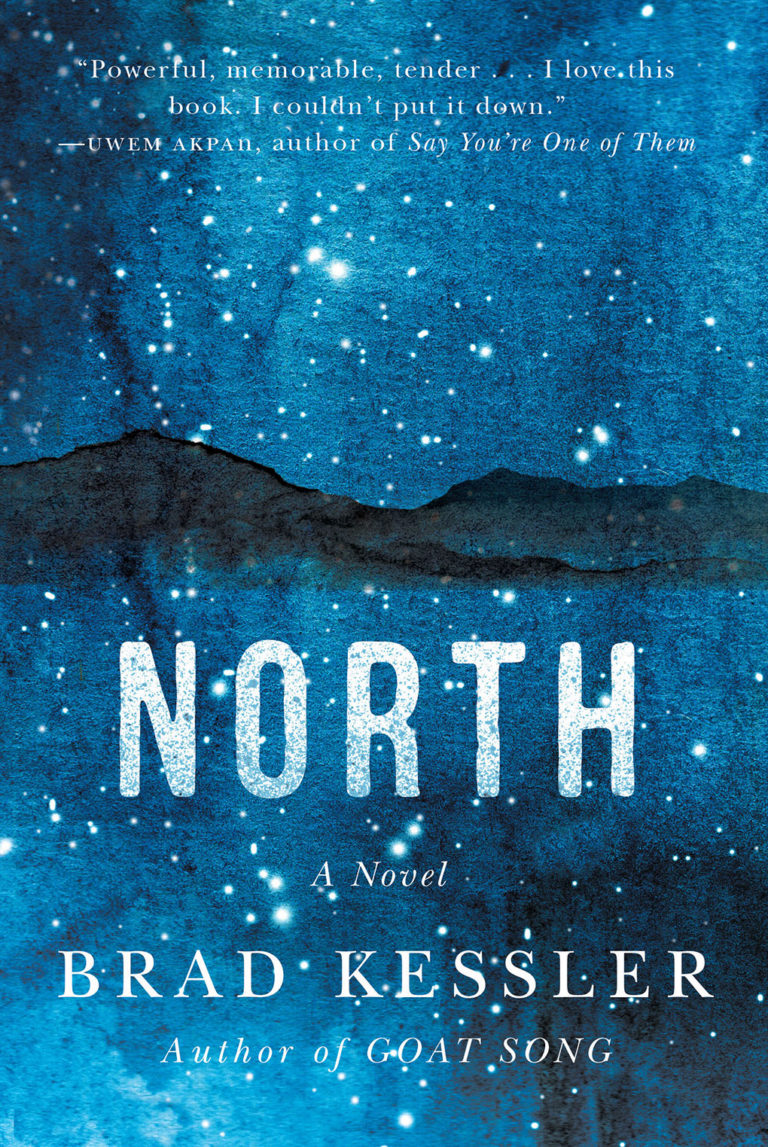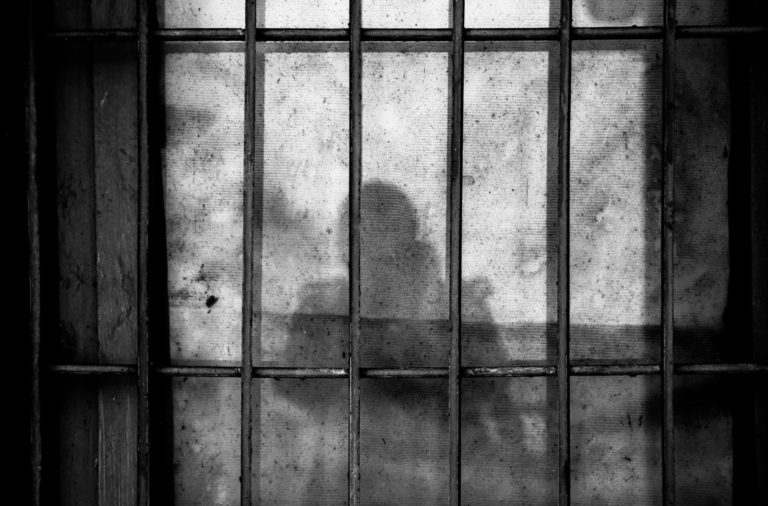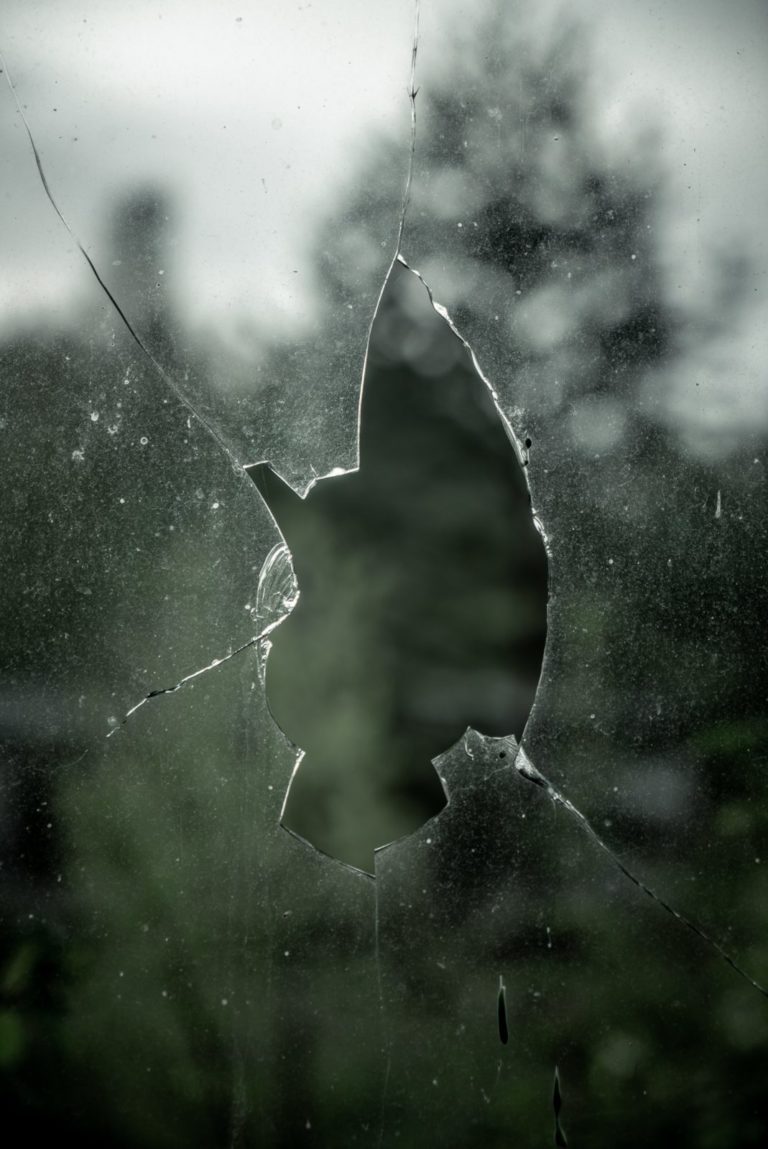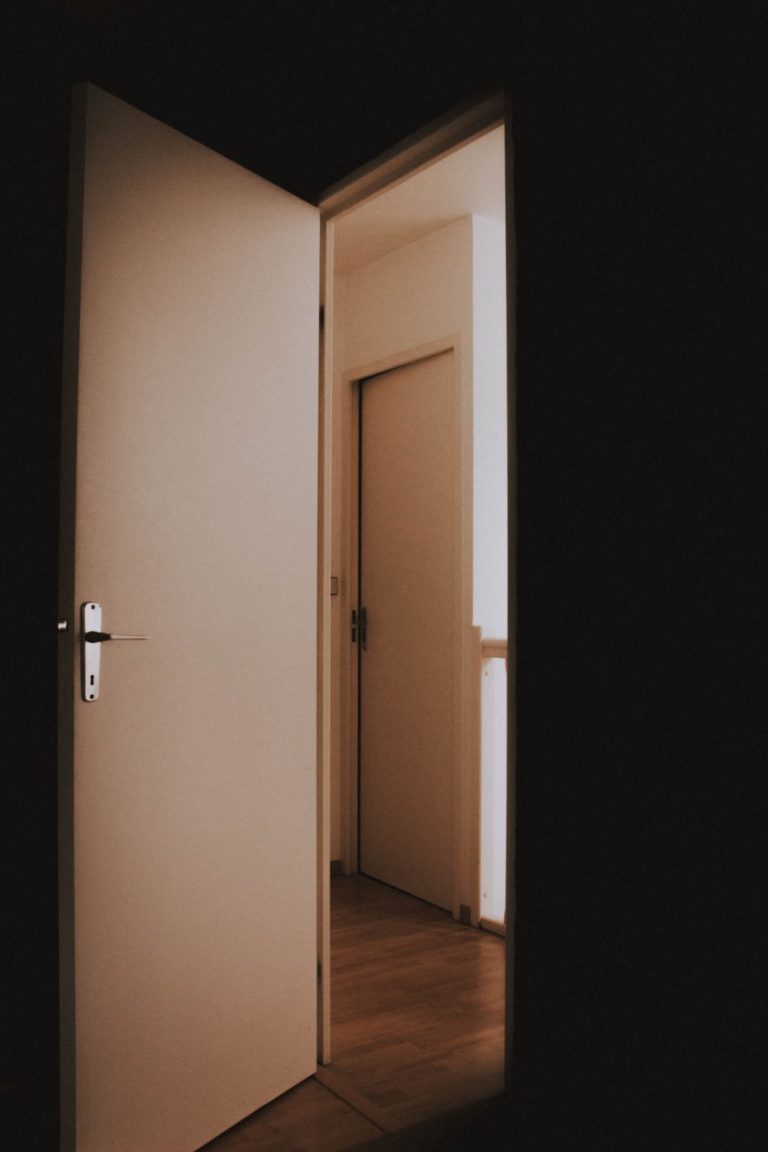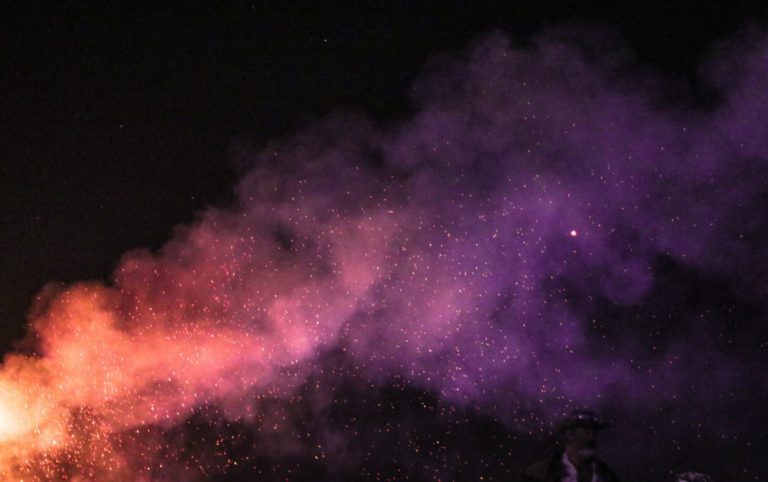Zeildorf had been on guard duty since 2 p.m. and he’d been paired with Suarez. That was the first bad thing. Suarez was known for his weak bladder—compared at various times by others in the platoon to the size of a peanut, a teaspoon, and George Bush’s brain. The dude just couldn’t hold his piss.
So, each time Suarez climbed down from the observation post tower, M–4 slapping his back as he descended the ladder rungs and limp-trotted over to the porta-potty, that was when Zeildorf reached into his fanny pack and pulled out one of the small bottles. Thanks to a KBR contractor—a man known to his associates only as “Bob”—Zeildorf had a generous supply of gulp-sized liquor which would help get him through this shift. The bottles were no bigger than his index finger, but my, my, my, did they make him happy. They were lined up like little amber gems in the pouch and, each time, they seemed excited to see him appear in the unzippered slit.
Private First Class Zeildorf, the Baghdad heat smacking him full in the face, would drain those bottles with one tip-back of the head, smack his lips, and say in a cartoon voice, “I loooove you, Kellogg, Brown, and Root! And Bob, you especially!”
He and Suarez were pulling the two-to-eleven, not the worst stretch of guard duty by any means. The day’s heat was almost at its peak, ready for the downhill slope; the mortars, IEDs and ambushes slowed to a trickle around the time of evening prayers; and, frankly, it was kind of nice to sit back and listen to the throat-singing of the muezzins as they called the faithful to kneel and pray. With all those mosques calling to each other from all corners of Baghdad, it was like a pileup of weeping characters at the end of a tragic opera, if you were into that kind of shit. Opera, that is. His parents had been, but not Jacob Zeildorf, thank you very much. A house full of weeping and wailing mezzo-sopranos, six CDs loaded into the twirling rack on the stereo every night, his father air-conducting with invisible batons, and his mother clutching her hands to her chest pretending to be Beverly Sills or some shit. Is it any wonder he’d fled Burlington at age 18 and joined the Army as fast as he could, even though he’d also be leaving behind brown-eyed Jasmine and all those hot nights up at the reservoir?
Opera sucked. His parents sucked. Burlington, Vermont triple-sucked. But this stuff coming from the mosque towers? That was some cool shit, man.
Hiiiiii-la-aaahk-salaaaaammm…EeeYiiii-aaahk-salaaaaammm…
Some soldiers found the call to prayers unnerving and let it get under their skin, made them jumpy and trigger-prone sitting up there in the guard tower at the dusty edge of Forward Operating Base Triumph. Not Zeildorf and Suarez. They acted like it was a free concert of the sort they’d never get to hear again back in Texas and Vermont. This was once-in-a-lifetime music, man.
They were only three hours into their shift at that point, but already the privates were eye-weary from scanning the sector of fire below—the two miles of Route Irish which ran along the north border of Triumph. They were tired of watching the Hondas, the Toyotas, the Nissans for any signs of suspicious activity: a sudden acceleration or deceleration, weaving in and out of traffic, the back end of the car riding low from explosives packed in the trunk, drivers hunched over the wheel with a murderous gleam in their eye and a lopsided grin on their face, that sort of thing. They were sick of watching the women in shapeless head-to-toe robes walking along the sidewalk, fabric fluttering like black flags. And if they saw another teenage boy walk boldly up to the base of the FOB wall, spit on the ground and flip them the bird, well, by God, by Allah, they swore they would take careful aim through their sniper scopes and blow the middle finger right off his fucking hand.
Zeildorf and Suarez talked aimlessly until they ran out of interesting things to say, starting with the miserable record of the Yankees so far this year, then what they each wanted to eat at the Dining Facility for dinner since it was Mexican Fiesta Night, then about the news reports they’d seen of Michael Jackson showing up for court wearing his pajamas and my God wasn’t he a pansy-ass. Then Suarez gave an uncomfortably lurid account of the times he’d spied on his five sisters when they were in the bathroom, and Zeildorf answered that he didn’t have any sisters but he’d often broken into his father’s stash of Playboys hidden in a shirt box under the bed (ineffectually concealed beneath an issue of Opera Times). Because he was feeling homesick and a little loose from the booze, Zeildorf also talked about Jasmine, but only briefly and in the vaguest terms. Otherwise, the ache was just too great.
Finally they both fell silent for a long stretch of time, each ruminating about their separate memories of bare female flesh, until Suarez said he had to take a leak and Zeildorf replied, of course, and Suarez was on his way out of the tower, M–4 clinking across his back, and Zeildorf was reaching into his fanny pack and singing the praises of Bob, the thin dude with a goatee who washed dishes at the DFAC. Bob’s equally corrupt sister worked for United Airlines and mailed him a fresh shipment each time she had a layover in Zurich or Madrid, God bless her little flight attendant’s heart. Zeildorf broke the seal, unscrewed the cap and tossed back another 1.7 ounces of Hennessey. He savored the tongue-curling fire for a minute, then he stood, cocked back his arm, and threw the empty bottle over the FOB wall and into the nearly-deserted street where it broke with a faint, jagged tinkle.
Zeildorf drank to erase the sight of Private Johnny Meeks going up in flame, his arms two torches as he stumbled away from what was left of the humvee. Not only Meeks, but the others, too. Ward, his guts glistening on the outside of his uniform. And McEwan who could make only one sound at the end—kaaa-kaaa-kaaa—as the blood bubbled out of his throat where the shrapnel took a slice. And not only that, but the tedium, the fucking grind of sitting in a hot tower scanning the sector for nothing, wiping away the sweat which stung you into blinking blindness. Break seal, swig, toss. Repeat as necessary.
Zeildorf was wrong, wrong, wrong—but in the aftermath, brigade officials concluded, some of the blame could be placed on Suarez’ tiny teaspoon bladder. Not to mention the fact that the Texas soldier’s nose had been broken three times in bantam-weight bouts on the amateur circuit before he joined the Army, so Suarez’ sense of smell was all screwed up, non-existent for all intents and purposes, rendering his capacity for detecting alcohol null and void.
That’s why, each time he climbed back up to the observation post and found Zeildorf in increasingly lethargic states of consciousness, tongue getting thicker and slurring multi-syllable words, he just chalked it up to the heat that was making his battle buddy act weird. “Jesus, man, drink water, drink water,” he’d say each time and Zeildorf would comply with a couple of sips. Suarez later swore up and down that he couldn’t smell the clouds of vodka-gin-whiskey-wine rolling off Zeildorf’s tongue. His nose had been smashed so many times, see, he was fucked for life—couldn’t have smelled the pussy of an eager whore even if she put it right in front of his face, if you wanted to know the truth.
In obedience to Sergeant Lumley’s order to “fucking stay hydrated out there on the line,” Suarez also kept drinking water, downing bottle after bottle of the stuff, and Zeildorf kept encouraging his hydration, knowing he’d have the guard tower all to himself for five-minute increments. Yep, just him and his good friends Jack Daniels, Jimmy Beam, and that Beefeater dude in the funny red clothes. Once, while Suarez was gone, Zeildorf stood up in plain view, his silhouette dangerously etched in black against the night sky, and pissed over the side of the tower. He started thinking about all the hajjis who might be walking by below getting a turbanful of piss rain (though at this hour, well into the curfew, Baghdad streets were mostly empty) and he started to giggle so hard he collapsed back inside the guard tower.
When Suarez returned, he found his buddy curled in a fetal position laughing his ass off.
“What? What’s so funny?”
Zeildorf couldn’t speak for nearly a minute, but when he did, he sputter-gasped, “Hajji. Hajji ain’t. Ain’t pissed off. Anymore. Now he. Now he’s pissed on.”
“Why? What’d you do, Z?” Suarez’ nose was so bad, he couldn’t even smell the backsplash of urine that had soaked into Zeildorf’s underwear.
“Nothin. Nothin, man.” Prompting more gales of giggles.
And soon, Suarez was joining in because Zeildorf was so infectious and because, at that point, Suarez had no idea he would be a contributing factor to Zeildorf’s scalp peeling off his skull two hours later. Otherwise, yessir, he would have done his best to sober up his battle buddy.
But no, at the time, he had no inkling, so he succumbed to Zeildorf’s weird merriment, too.
That’s how Corporal Boordy found them not much later: two worthless, sorry excuses for privates sprawled on the floor of the observation post, rifles on the floor beside them as they wiped tears from their eyes and tried to swallow hiccups of laughter. “What the fuck?!” Boordy shouted as he held the top rung of the ladder in his right hand and poked his head through the square in the floor of the guard tower. “Why the fuck aren’t you two scanning your sector? And what the fuck is that smell?!” Boordy took in a lungful through his fully-functioning nose. “Aw, fuckinghell, have you two been drinking?”
That’s when Suarez stopped laughing and looked at Zeildorf, who gave him a sloppy smile and rolled his head from side to side. Then, with a blink, the scales fell from Suarez’ eyes. He saw it all now. He realized how stupid he’d been as the pieces fell into place with a loud metallic clang. “Shit, Z! What the fuck?!”
“What? What’d I do?”
Suarez looked at Boordy. “He was fine all night, really,” he said. “Until just before you got here, he was fine.” Though, as those metallic pieces still echoed, he knew Z had not been fine for quite some time—most of the shift, in fact.
Boordy wasn’t even listening to Suarez, but was grabbing for the radio. “Base 1, this is OP 3, come in.”
This brought on a new wave of laughter from Zeildorf. “O, pee. I peed. I peed onhajji,” he sang in a rough attempt at a tune.
“OP 3, this is Base 1. Go ahead.”
“Sarge, we got a situation here.”
Zeildorf laughed some more. “Sitchy-ation. Sarge, we gots us a sitchy-ation.”
Suarez banged the heel of his hand against his forehead and wondered how he could have been so fucking stupid, so fucking blind. As Corporal Boordy spoke into the radio, Suarez wanted nothing more than to get away from the stupidity of his fellow guard, his stupid drunk battle buddy. Well, that and he really needed to pee again.
They brought Zeildorf down from the observation post, practically had to carry him on their backs down the ladder, and by that time Sergeant Lumley was on the scene, along with the sergeant of the guard, a stern sergeant first class who wore sunglasses even though it was well past 2300 hours.
“You the platoon sergeant?”
“Yeah,” Lumley said, feeling like a mother who’d been called down to the school for a meeting with the principal. “Yeah, he’s mine.”
“It appears your soldier’s been doing a little drinking on the job. Don’t ask me how, but that’s what it looks like, all right.”
Lumley gave a hard glare at Zeildorf, who smiled, his upper body tracing a small circle as he tried to stand at attention. “Hiya, Sarge!”
Lumley gave an equally hard look in Suarez’ direction, but the private dropped his eyes and looked at the night-dark dust around his feet.
Sergeant Brock Lumley had nothing to say to these two soldiers, the sorry sacks of shit. He was already thinking about his testimony at Zeildorf’s UCMJ hearing. He was already carefully observing every action, memorizing every word so he could get it right when he sat in the witness stand.
Lumley’s head was still cobwebbed with the grog of sleep—the fist banging on the metal door of his hooch had pulled him from a liquid dream of an old girlfriend, long forgotten, who was eagerly taking him into her mouth. These sorry-ass privates standing in front of him were definitely not worth interrupting a dream like that. All the same, he loved these guys, Suarez and Zeildorf. It was his job as squad leader to make sure they pulled through this miserable war in one piece. If they were in trouble, then he was in it with them just as deep.
“I’ve already contacted the MPs,” the sergeant of the guard said, “and they’re trying to find a breathalyzer kit. As you can guess, they’re having a hard time getting their hands on one since drinking is—” his sunglasses bore down on Zeildorf “—a DIRECT VIOLATION of General Order NUMBER TWO!”
Lumley had to get his men away from this guy who was apparently a square egg, so he said, “Thanks, Sarge. I got it from here. Send the MPs over to Bravo Company, 1-83rd when they get here, okay?”
The sergeant of the guard was reluctant to let his prized possession go—a soldier drunk on duty!—but he nodded at Lumley and said he’d start working on his sworn statement and he’d be in touch.
Boordy climbed back up the ladder to his guard post, still muttering “Ho-ly fuck!” every fourth rung. Lumley took both Suarez and Zeildorf by the arms and marched them along the road which led to the platoon’s living area. It was full dark now and Baghdad hung out there beyond them like a heavy, smothering blanket. Above them, a few weak stars tried to punch through the black velvet.
Zeildorf stumbled twice and they barely caught him before he could spin crashing to the ground. Halfway to the connex barracks, he started to slur-sing an unrecognizable song which involved the repetition of “rocket in my pocket,” until finally Lumley growled, “If you don’t clamp it shut right now, Zeildorf, so help me God, I’ll butt stroke you on the back of the head.” Z only gave it two more repetitions before fading to a halt. The three of them walked in silence, the ground crunching beneath their boots and the smell from Zeildorf leading the way like a trail of heavy perfume of piss, sweat, and whiskey.
When they reached the Life Support Area, they put Zeildorf in Lumley’s hooch and Suarez was sent out to find the first sergeant and company commander while Lumley said he would guard Zeildorf and make sure nothing happened in the meantime.
Later, Lumley would think long and hard about those last words he spoke to Suarez: “I’ll make sure nothing happens.”
Because something sure as fuck did happen, and not long after Suarez hustled off into the dark down the line of hooches. Lumley stood sentry outside his door and listened to Zeildorf bump around inside. Later, all the Monday-morning quarterbacking could never explain why Lumley didn’t go inside his own hooch and make sure Zeildorf behaved himself, zip-tie the drunk soldier’s hands behind his back, or put him in the front leaning rest position, or anything but what he did or didn’t do in this situation. Lumley didn’t know why, exactly, he made the bonehead choice to stay outside and stare up at the stars like he was getting all touchy-feely with the universe or some shit like that. Maybe he’d thought the best of Zeildorf, maybe he thought the first sergeant would be trotting up any minute now, maybe he just didn’t prepare for the worst.
Whatever. It felt good to sit down for one minute, just one fucking minute, and lean up against the corrugated wall of his hooch. Lumley could hear the clink of glass and thought nothing of it at the time. There was more bumping and rustling, then Zeildorf’s reprised attempt at his song, hitting “rocket in my pocket” like a broken record. Then everything fell silent and Lumley could feel the hush of the night enfold him. There was a sound off to his left—a distant popcorn rattle of gunfire from a sector deep in downtown Baghdad—and he turned, distracted by the thought that another platoon was getting in the shit out there in Baghdad, after-hours. He hoped his fellow Americans were waxing those hajjis but good.
That’s when it happened. Zeildorf burst out the door like an Olympic sprinter coming off the starting blocks. He knocked against Lumley, sent him sprawling back on his ass, and continued in a straight line for the motor pool. He’d stripped off everything but his trousers and boots, and now he was yelling “Woo-hoo! Woo-hoo!” as he ran toward the line of humvees parked in neat rows less than half a mile away.
Lumley tried to get to his feet, but he got tangled in his own boots and quickly lost his balance again. He fell back against the metal wall of the hooch with a hard smack to the skull, which made everything ring inside his Kevlar just before a thousand stars prickled his vision and it all dimmed to black.
He was out for less than two minutes, just long enough for Suarez to bring the first sergeant on the scene and for the first sergeant to reach down and lightly slap Lumley on each cheek to wake him up.
Lumley tried to speak around a thick tongue. “Zeildorf, he—”
“What happened here, Lumley?” The first sergeant was peering hard into his eyes, even brought out his little flashlight with the blue lens and flicked it across Lumley’s face. As if he was the one who’d been drinking, as if he was the one whose pupils needed to be checked for dilation.
Lumley tried to speak, but his head still rang with the sound of a hundred pipes falling onto concrete. All he could manage was “Zeildorf. Gotta get Zeildorf,” which was no help at all. The first sergeant, his hard, heavy hand clamping down on Lumley’s shoulder, looked back at Suarez. “Tell Zeildorf to get out here. I wanna see him. Now.”
Suarez flinched at the bark and scurried inside Lumley’s connex.
Lumley shook his head and told the first sergeant, “No use. Gone.”
Suarez was back out in a flash. “First sergeant, he’s gone.”
“What do you mean, gone? ‘Gone’ does not fucking compute.”
“I mean he ain’t in there, first sergeant.” Suarez cowered in the doorway and looked like he wanted to join Z in his disappearing act.
“What happened, Lumley? You let him get away?”
“Knocked me down, Top. Knocked me flat on my ass.”
“Fuck!” The first sergeant stood from his crouch, releasing Lumley’s shoulder from the vise-grip. “If he ain’t here, then where the fuck he go?”
There came a shout, a faint-but-distinct “Woo-hoo!” and the rumble of a humvee engine from the motor pool.
No one knows exactly what happened, but here is what the official report was able to piece together:
At approximately 2345 hours, Private First Class Jacob P. Zeildorf did unlawfully enter the motor pool belonging to the 123rd Combat Heavy Battalion, 45th Brigade, Iowa National Guard. Once there, he unlawfully took possession of a humvee belonging to the aforementioned battalion and proceeded to leave the motor pool area at speeds in excess of 30 miles per hour. He made his way to Entry Control Point Three and, once there, overwhelmed the guards (i.e., scared the shit out of them) by navigating the concrete barriers, set at serpentine angles, at unlawful speeds (exceeding 10 miles per hour), chipping the corners of two barriers, and escaped FOB Triumph, shirtless and helmetless, with a final surge of speed that took him onto Route Irish with a gathering roar from the humvee’s engine and a dwindling, drunken woo-hoooooo.
There were a lot of furrowed brows and puckered asses at headquarters the next day, everyone wondering how the gate guards could have let him slip through their fingers—“like a buttered eel,” is how one captain put it.
The fact of the matter is, the Military Police guards did immediately place a call to division headquarters. When they finally reached the battle captain—beleaguered and irritable because he’d been dealing with a technical problem for the past three hours (the Secure Military Operations Grid, SMOG for short, had been off-line most of the evening thanks to a sandstorm in the vicinity of Basra)—he did not at first believe them, thinking it was someone’s bad idea of a prank, and he hated the thought that he’d be forever known as the battle captain who got punk’d on duty. The MPs had to call back to Headquarters twice before the battle captain was convinced, thus delaying the pursuit and capture of PFC Jacob P. Zeildorf, who by this time was in violation of not only General Order Number Two, but also Number Three (“a soldier will always use the buddy system and travel in groups of at least two, preferably three or more”), Number Six (“a soldier will never go anywhere without protective outer-garments and will always wear a Kevlar helmet when operating a motor vehicle”), grand theft auto, and federal felonies too numerous to mention.
So here he goes off the FOB at last, head thrown back and loving the feel of a 50-mph breeze cooling his close-shorn scalp. This reminds Zeildorf of February afternoons when, with the school day behind him, he would take his father’s Ford F–150 for long drives on I–89, windows rolled down, night already closing in, roads slick with wind-polished icy patches, his hair longer then, whipping around his neck and strands coming around to sting him in the eyes, but everything a dangerous thrill, just to have escaped Burlington, if only for an hour. Woo-hoo! If she wasn’t working the after-school shift at Olive Garden, Jasmine would come along with him, scooting as close as the gear shift allowed. She kept one hand on the middle of his thigh, never going higher to his own personal gear shift (grab hold and put me in Overdrive, bay-bee!), but he was okay with that, at least for now. They had all the time in the world. He would have the radio cranked to the classic rock station and there would be something awesome by REO Speedwagon or Kiss to go along with Jasmine’s hand, the rushing icy landscape and the wind in his hair. I’ve got a rocket in my pocket!
He thinks of other nights when, bored out of their skulls, he and Buck Andretti and Josh Taylor and Lincoln Washington would go around to the Burlington gas stations—the Mom-and-Pop ones which were closed for the night—and pee in the windshield-wash buckets and Oh God they’d laugh at how, the next morning, all those moms and suits and truckers would be squeegee-ing their piss across the windshields. Good times, good times.
The Baghdad wind slaps his face, but there is no hair to sting his eyes.
Zeildorf still has his fanny pack—for some reason, they have not confiscated that—perhaps they did not know of his secret stash—and now he unzips and reaches inside for some of that liquid Novocaine courtesy of Bob the Dishwasher. Another whiskey fogbank rolls into his brain and obscures more of what he’s been trying not to see for the last eight hours. Shapes become indistinct, people are dim fuzzy outlines. And he’s totally cool with that. There is so much, too much, that he’s been trying not to remember—the black–orange flowers of flame, the torched limbs, the flies crawling across open eyeballs—that he is tired, so fucking exhausted from trying to keep it all managed, keep it all at bay. The little bottles of liquor help, but he’s no dummy, he knows it’s only a temporary fix. The gore will return and he will have to stuff it back out of sight. Until then, he’ll do what he can to cloud it with scotch, vodka, and whiskey. Zeildorf’s head fills with air and bobs above his shoulders like a balloon. He presses down, hard, on the accelerator.
Away he goes: the rebel son of Irma and Stanley Zeildorf of Burlington, Vermont; semi-faithful boyfriend of Jasmine Morgenstern, also of Burlington; a 2002 graduate of Burlington High School (Go Seahorses!); regular poster to the Death Metal Rocks online chat group; and, until ten minutes ago, law-abiding citizen, squared-away soldier.
So here he zips down Route Irish, once called the Most Dangerous Road in the World by The Sydney Morning Herald. The Aussie reporter also described the 12-kilometer stretch of highway as “a terrifying void,” a terrorist’s shooting gallery where every driver is a trophy. Save for a few delivery trucks and a patrol by Iraqi Police, Zeildorf has the road to himself as he joyrides into the void, another sitting duck for Ali Baba the Sniper. The curfew has quieted the city and that’s why there are few Local Nationals around to hear his shouts of triumphant joy as he drives through the wasteland that lies outside the FOB. Out here, the groves of trees which once dotted Babylon have been reduced to splintered stumps by the American tanks. Craters pock the road, concrete rubble spills across sidewalks, and windborne trash rolls down the street like tumbleweed in a Western movie. Zeildorf passes three men digging a hole on the shoulder of the road, but thinks nothing of it; at this point, they are just men doing a late-night job, and he could give a flying fuck. He careens and weaves, stomp-smashing the accelerator, and practically pulling the five-ton humvee along with him down the road. Two or three pieces of stray trash whip into the air as he passes. He’s been driving for what seems like hours, but might only be minutes. Out here in the void, landmarks and signposts are non-existent. And he’s totally cool with that. It’s just him, the wind, and the tumbleweed trash. Woo-hoooooo!
Zeildorf has no fucking clue where he is now—Sadr City? Rusafa?—but he doesn’t care. All that matters is the breeze on his scalp and the thrill of escape, not to mention the fact that his head feels like a hot-air balloon lifting to the heavens. He rather likes the way this godforsaken part of the globe is falling away below him as he’s taken higher. The heavy metal frame of the humvee shimmies and shivers and shakes, protesting Zeildorf’s speed—and, in fact, there is an internal governor that does not allow the vehicle to go beyond 60 miles per hour, courtesy of the Army Safety Program.
But it is not enough to save him. He is somewhere in northeast Baghdad, the swollen Tigris flowing a couple of blocks away, the kebab stands and bookstalls and tire repair shops all dark and shuttered for the night, no one else in sight. And that’s when Zeildorf’s joyride comes to an end. Woo-h—
The minute hand kisses the hour hand and it’s midnight. And now, at the stroke of the hour, the humvee leaps a curb and rams into the side of a building and a body flies through the air like a cannon-shot daredevil, bursting out of the windshield, bulletproof glass shredding the skin as it travels through. The body is peeled by the windshield before it rockets free of the vehicle, free for one blessed nanosecond, free of gravity, free of earth, free of responsibility, free of the dead soldiers he leaves behind, free of Sergeant Lumley, Johnny Meeks, Specialist McEwan with his gurgling throat, the first sergeant, the battalion commander, free of the whole fucking lot of them. If only for a nanosecond.
The body arcs beautifully through the air, then slams through the wall of a shop belonging to Ibrahim al-Medoud, a vendor of electronics, spare parts, and bootleg DVDs. The body hits so hard, it goes through bricks like they were butter, knocks the front door off-kilter, and pastes a bloody smear across a faded poster of Jackie Chan. A piece of scalp lands on the corrugated-tin roof with a plop. There is some smoke and dust—which will swirl through the air for nearly five minutes like a dislocated spirit looking for its next home—then all falls silent. The humvee engine ticks as it cools. The vehicle has come to rest inside the shop, the front tires on the counter, as if the humvee were a customer leaning there waiting to pay for an 80-ghz processor and just passing the time with Brother Ibrahim. The humvee is banged up, but can be repaired.
Not so for Private First Class Jacob P. Zeildorf. He has died of “massive head trauma.” He entered Ibrahim’s shop not in the traditional way through the front door, but by punching a hole in the wall with his skull (or what was left of his skull at that point), and the body followed, the speed and velocity drastically slowed by first the windshield and then the brick wall. Now, what’s left of PFC Zeildorf is draped across a toppled rack of Clint Eastwood movies. He is shirtless—though it looks like he’s wearing a crimson sweater—and his pants are shredded. The fanny pack with those beautiful bottles from Bob the Dishwasher is nowhere in sight, lost somewhere in the transit from humvee to Clint Eastwood.
And now Ibrahim al-Madoud is on the scene, cautiously peeping around the doorway of the back room that leads to his living quarters. He had been asleep before being jolted awake by the explosion. He’d remained paralyzed in his bed for two minutes, gripping the sheets in his fists, thinking he and his family were once again under attack from the Sunni extremists who roamed his neighborhood like thugs. When he heard nothing further from the shop, he gathered his courage, released his grip on the sheets, took hold of his aluminum baseball bat, and tiptoed from his bedroom to the store. His wife tried to join him, but he hissed and sent her back with an irritated wave of his hand.
Good thing he did because it was not pretty inside his shop. Everything—his entire inventory, it seemed—was toppled and jumbled. The smoke and dust were just beginning to clear and it was hard to see through the haze, but he could see the things which did not belong here—a humvee, a crumpled figure on his floor, a spreading lake of blood—and it was not pretty. He had seen worse—when his cousin Jelif’s arm was blown off in the marketplace suicide bombing, and when his uncle, in a separate attack, had been eviscerated, a hole in his abdomen you could put your fist through—but this was bad because it was in his shop, a violation of his personal space. How in Allah’s name would he ever get that humvee off his counter?
He dialed the police, and hissed again at his wife who had tried to peek inside the shop. When the desk sergeant answered, he tried to explain about the truck and the body, but he was quickly overcome with anger and revulsion, and Ibrahim al-Madoud broke down crying, managing only to give his address and tell the police to please hurry, please hurry. He said nothing about an American soldier because he had no idea this was, in fact, a G.I. splattered across his Clint Eastwoods.
And when the Iraqi Police arrived, they too did not make any notations in their notebooks that the body belonged to an American soldier. To them, this was just another example of nighttime mayhem they must log in their books and issue the civilian victim the proper paperwork for compensation of property damage, et cetera, et cetera.
(At this point, you might point fingers at these sleep-deprived IPs, criticizing their inability to connect the body to the U.S. Army humvee—why, any third-grader could do that math and come up with the obvious, smack-you-upside-the-head solution—but let’s go easy on these overworked public servants, shall we? Most of them aren’t real cops—not in the career-devoted, academy-trained sense of the word, at least. They only took the job a few months ago because it seemed like easy, assured money in this topsy-turvy country of theirs which has emerged barely intact from the smoking rubble of Saddam’s reign of terror. Many of these men standing here writing in their notebooks, ill-fitting uniforms hanging limp on their wiry frames, know less about police procedure than the average TV-guzzling teen in America who can spout terms like “M.O.,” “perp,” and “book ’em” with the greatest of ease. No, these are just men doing what they can to keep sandals on their children’s feet and to put goat and rice on the table every night, so if they get a little sloppy with their detective work every now and then, cut them some slack, all right?)
The IPs close their notebooks with a sigh, securing the bundle with a rubber band to retain the loose pages, then issue the necessary forms to the still-trembling Ibrahim al-Madoud. One of them restores the rack of Clint Eastwood movies to its proper place (surreptitiously slipping a copy of Bronco Billy beneath his shirt as he does so). Another stares at the brains on the Jackie Chan poster and clucks his tongue, not envying the shopkeeper his gory task. Another, a guard posted outside on the street, picks his nose and examines his fingernail to see how successful he’s been.
The body is scooped from the floor of the shop, wrapped in a black plastic tarp, and driven to the morgue where it is placed on the floor next to a half-dozen other tarp-wrapped corpses, burned-beyond-recognition bodies from a roadside bombing fourteen hours earlier.
And so, Jacob P. Zeildorf, formerly of Burlington, Vermont, is stacked like cordwood beside the barbecued bodies of Local Nationals, the very kind of hajjishe’d pissed on and vowed to shoot their fucking fingers off of less than six hours ago.
He is left there in the police station morgue, unidentified, unclaimed, unnoticed for another five hours until the morning shift arrives—these officers fresh from a night’s untroubled sleep. Hearing of the electronics store drama, the incoming Chief Inspector decides to send his desk sergeant down to the basement to take a look at the body. The desk sergeant complies, but only reluctantly—this is no way to start his day, he’d only just heated his chai tea on the Bunsen burner and already it was cooling. This is typical of the desk sergeant, however; around the station, he’s known as The Grumbler.
He descends to the basement and finds the body.
This is the first time anyone bothers to check the pockets of the shredded pants and, digging into the fabric stiffened by blood, the day-shift desk sergeant finds three U.S. pennies, a Bic lighter, and a picture of a girl. It is a wallet-sized studio portrait of a brunette who has the smile of someone who has just lost her braces and is looking forward to the upcoming school year because it will be her last one at Burlington High. On the back, there is writing in blue ink, the letters fat and loopy, the i’s dotted with hearts, and if the desk sergeant wasn’t in a bad mood, and if he was a more vulnerable, sensitive man, and if he could read English, he might have gotten a little misty-eyed over the message: “Jacob, I’ll be waiting for you. Come home quick. Love, Jasmine.”

